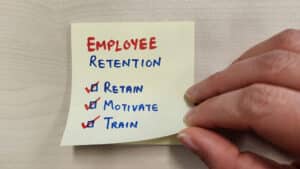Did you know that the United States employes nearly ten times more security guards than full-time law enforcement officers? In May 2016, over one million people worked as security guards compared to only 120,000 in law enforcement.
Security guards may resemble the police in uniform, but their clothing is where their similarities end. Men and women wearing a law enforcement badge have rights and obligations to uphold that a private citizen doesn’t.
At the same time, police officers see their schedules manipulated by multiple forces from a city or municipal funding to labor union negotiations. Because security guards work for private contractors, they aren’t subject to these fluctuations or rights.
Are there security guard rights? And if so, how do they impact a security guard’s hours?
Keep reading to find out what kind of hours you might be expected to work in this profession.
Here for the Long-Haul: The 12-Hour Shift
The average private contractor assigns two types of shifts: eight-hour and twelve- hour shifts.
These shifts may occur overnight or during the day, and most come with an hourly-pay rate.
While 12-hour shifts are long, they do come with benefits. While other professions might not receive benefits because they’re assigned to part-time work, security guards are commonly hired as full-time employees. In fact, many of the most prominent security guard companies don’t hire part-time or temporary employees.
Are 12-Hour Shifts Legal?
According to the Fair Labor Standards Act, Twelve-hour shifts are legal in the United States. More importantly, there are no laws dedicated to regulating long shifts.
Federal law doesn’t require shift lengths or mandate breaks on the job. Rest periods between five and 20 minutes long must be paid, but 30-60 minute breaks don’t count as paid working hours.
State law mandates rest periods, but every state offers different advice on the matter.
For example, the state of California provides stringent detail. It requires employers to provide a second meal period of at least half an hour when scheduling an employee for more than 10 hours per day. The break is mandatory when shifts are longer than 12 hours, but both the employer and employee can forgo the second meal break if both consent.
At the same time, the state of Minnesota only requires that employers provide “sufficient unpaid time for employees who work eight consecutive hours or more”.
Who Can Work 12-Hour Shifts?
Anyone over age 16 can work these shifts.
Who works these shifts and when often depends on individual company policy. Some companies may use a rota that doesn’t allow employees to work more than a certain number of hours in a 72-hour period.
What About State Law?
While federal law avoids regulating shift length, state labor boards often dive in.
In most cases, security guards fall outside of mandated or regulated shift times. Most regulation deals with high-risk or dangerous work, like sawmills or manufacturing or factory environments. Still, most states don’t concern themselves with working hours and leave it to businesses to dictate as they see fit.
Still, some state law protects employees from excessive work schedules. The state of Illinois mandates employers provide at least 24 hours of consecutive rest every seven days for full-time employees.
Did You Know You Have These Rights?
Your shifts may not have limits, but security guards who work long weeks and long shifts are entitled to things like overtime pay, meals breaks, and accurate time-sheet reporting.
Do you recognize any of these workplace behaviors? You may not be getting what you deserve.
Overtime Is a Right
If you work over 40 hours a week, your employer must pay you overtime (time and a half). Overtime begins at one minute past your fortieth hour of work that weeks.
If your company pays your base wage for hours over forty, then they may be illegally withholding your pay.
Remember that overtime counts when the work you do is for one company. Even if they deploy you to different client sites, they are the one who cuts your paycheck. Thirty hours at one client site and thirty hours at another doesn’t mean you’re working two part-time jobs: you’re working sixty hours per week.
Do you receive different wages at each site? Your overtime should feature your blended rate. Talk to HR about what it is you receive when the clock strikes forty.
Reporting Shift Hours Is Essential
What does your time-sheet say at the end of the week? Does it include your official shift schedule or feature your actual hours worked?
If your supervisor adjusts your time-sheet, look carefully at how the changes impact your pay. For example, if you tend to arrive five minutes before or after your shift and it gets rounded up to the closest block of time, it’s often not a problem.
However, if you arrive at work at 8:38 and leave at 5:17, you’re missing out on half an hour of pay. Making these adjustments is a serious offense.
Drive Time Is Paid Time
Are you driving between sites while on your shift? If you clocked in, then drive time is paid time.
Because many companies keep security guards as contractors, this becomes tricky when you’re driving in between shifts and site. Some unscrupulous employers may construe it as driving to or from work.
However, if the clock is running, your drive time does not count as a break. Make sure you get paid for it and that it counts towards your overtime.
Withholding Pay Is Illegal
Anytime an employer or contractor withholds your pay for completed work for any reason, then their actions are likely illegal.
Prep time counts as paid time. Driving between sites while on shift is paid time. Not allowing break time but docking it from your time-sheet anyway is wrong. Docking your pay for workplace violations is against the law.
While it is technically legal to dock or reduce your pay, labor laws restrict it in many scenarios, and you should always receive overtime.
The Department of Labor provides an FAQ sheet on the subject here.
Know Your Security Guard Rights Before Signing Onto the Job
Security guard rights are workers’ rights. Rights like overtime, fair working conditions, and time reporting receive protection from the law.
Do you know your rights or have questions about security guard pay? Use our website as a resource to learn more about what to expect on the job.






